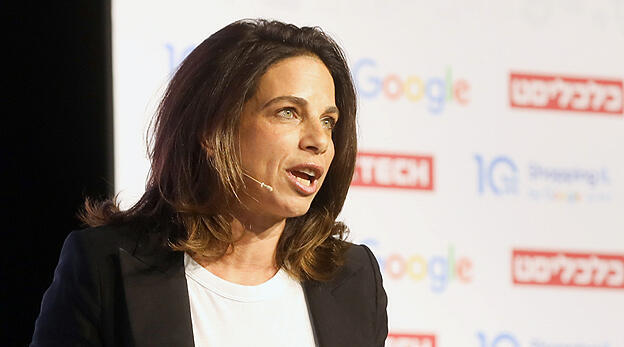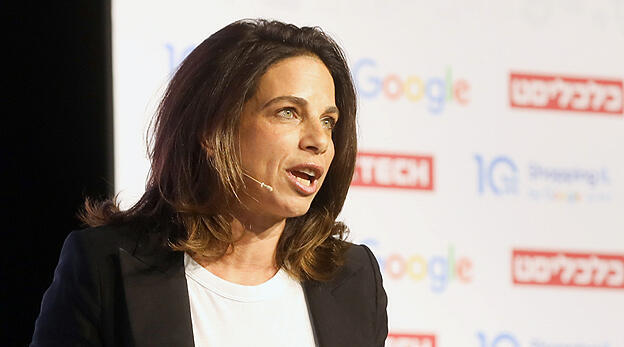
“The form of search and the way we interact with search engines are changing”
Anat Horvitz, Director, Sector Lead at Google, added that “We are learning to search in a more detailed and sophisticated manner, providing more descriptive inputs as if we are having a conversation”
"Looking back at the past decade of e-commerce took me on a journey through a time tunnel, trying to recall my online shopping experiences from ten years ago. I vividly remembered the shopping I did just last week in preparation for summer. It struck me suddenly that my son didn't have flip flops, so I immediately placed an order with a click. Then, I purchased hair cream for my daughter, and the next day, on the way to the train, I bought food for our dog. All of this was done through my mobile phone, using GPay, without the need to fill in credit or address information. Within a few minutes, everything was ready, and it was waiting for me at my doorstep the following day. It feels so natural now, but if we pause for a moment to reflect, we realize how much everything has changed over the last decade," Anat Horvitz, Director, Sector Lead at Google, said at the start of her lecture titled "Summing up a decade in Israeli e-commerce with a forward-facing perspective" at Calcalist's e-commerce conference.
"It made me think about how we used to be when we first discovered the possibility of shopping online. I remembered the hassle of filling in credit card details and waiting for a week, not to mention the challenges of returns and cancellations. We have come a long way in this decade, and that's when we established Shopping IL, the annual Israeli shopping holiday. It is undoubtedly one of our favorite projects because it has taken on a life of its own, evolving and growing. We started with 150 stores and gradually added more, checking inventory and uploading it to the platform. Today, there are over 3,000 stores on the platform, and this year we are partnering with Isracard."
"Numbers also tell the story of the local e-commerce growth," added Horvitz. "The local market has doubled in the last five years, generating revenues of over $9 billion. This translates to double-digit growth almost every year, and the trend is expected to continue expanding. 72% of consumers have expressed their intention to increase their online purchases in the coming years."
Horvitz further commented, "Looking at the percentage of online shopping in Israel, we have reached a record year. About one-third of all shopping in Israel is now done online. In November, during the international online shopping holidays such as Black Friday, Cyber Monday, and Chinese Singles' Day, 60% of the shopping was done online. And we still have room to grow."
Horvitz described the consumers and their behavior, saying, "Google search is the ultimate litmus test in the world. We turn to it with every question we have. From this data, we can tap into consumer behavior and desires. It's no surprise that when we are searching for a new product to buy, we most often turn to Google. In this field too, there have been significant developments in the last decade. The form of search and the way we interact with search engines are changing. We are learning to search in a more detailed and sophisticated manner, providing more descriptive inputs as if we are having a conversation. The search engine, powered by AI advancements, provides us with more focused and relevant answers."
According to Horvitz, when examining search categories, all categories show growth. "Undoubtedly, clothing, footwear, and electronics are leading categories. The beauty category is the fastest-growing, and it's worth paying attention to."
Another observation derived from search habits is that until 2020, consumers were equally searching for local and global commerce sites. During the pandemic, there was a sharp increase in searches for local sites compared to global ones, mainly due to international shipping difficulties. "But the pandemic is behind us, and we see that the gap that emerged during that time continues even now. Businesses are capitalizing on the momentum created by the pandemic."
At the upcoming Shopping IL, Google, together with Isracard, will launch the Israeli e-commerce report. Horvitz shared some data from the report, stating, "Nine out of ten Israelis affirm that they shop online. Not only has online shopping increased, but the frequency of shopping has also risen. We observe a 33% increase in shoppers making purchases more than five times a month, with the highest frequency being among women aged 35-44. Another noteworthy figure is the motivation behind online purchases. Women prioritize convenience, while men seek better prices. Generation Z seeks quick delivery because they value speed. This information is crucial, as it serves as a seismograph indicating which target audience requires emphasis on specific messages."
Horvitz also presented data from the report regarding changes in the state of the economy, peak inflation, and the evolving economic landscape. 50% of women refrain from unnecessary shopping, 54% of men search for discounts, and 45% compare prices more frequently.
"The market is changing rapidly, and we need to be attentive to consumers to understand what is important to them," concluded Horvitz. "Consequently, we must try and explore value propositions and types of messages tailored to different audiences. We should not be afraid of innovation and should optimize our work using all the AI tools available to maximize our efficiency."














